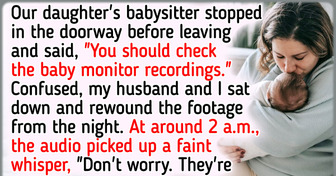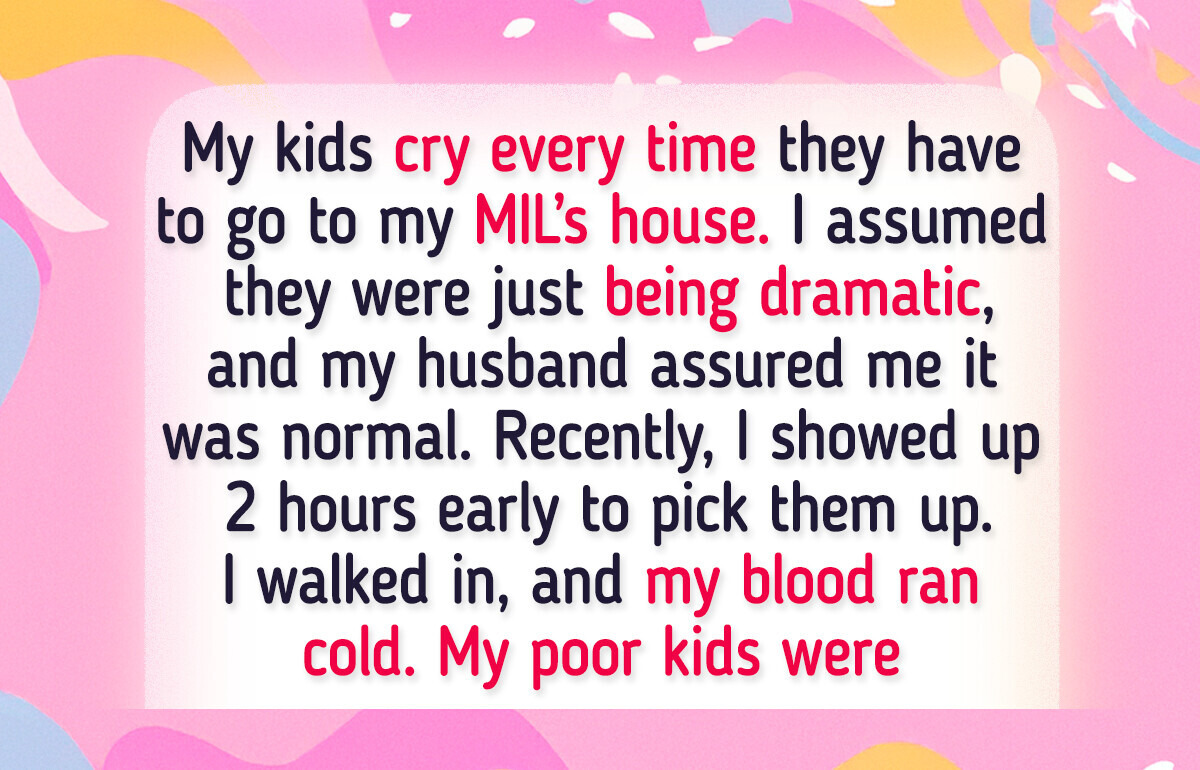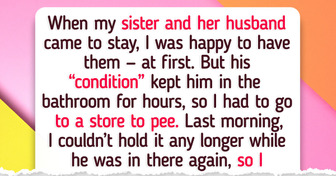12 True Stories So Twisted You Won’t Believe They’re Real


Becoming a parent shifts your focus entirely to your children, making it a significant responsibility. At times, support from in-laws, relatives, and family can be a real lifesaver. However, for our reader, help took an unexpected turn when she experienced toxic grandparent behavior from her mother-in-law.
Hello, Now I’ve Seen Everything!
I’m seeking advice about my current situation, as it’s been causing me a lot of stress. My kids cry every time they have to go to my mother-in-law’s house. I assumed they were just being dramatic, and my husband assured me that it was normal.
Recently, I showed up two hours early to pick them up. I walked in, and my blood ran cold. My poor kids were standing silently in the dim hallway, facing the wall. They didn’t even turn when they heard the door open. I was shocked, my heart was beating loudly.
I immediately ran to my kids to ask what had happened. When I touched my daughter’s shoulder, I noticed that she slightly flinched. This caused me to rush to where my MIL was, and when I asked what was going on, she said, “Ohh, they were misbehaving.” Her expression looked as if she had done nothing wrong. I looked confused, so she further explained, “I was disciplining them because they don’t behave.”
I could feel my blood boiling, so I decided to grab my kids and walk out without saying another word. During the ride home, my daughter quietly spoke up, “Grandma does that every time we visit, Mommy.” My heart shattered as I held back my tears, feeling so sorry for my poor babies. I have no idea how long this has been going on. I’ve been ignoring the signs my kids have been showing, brushing them off. I felt so awful that I pulled over to hug them and promise that I wouldn’t let it happen again. I can’t even imagine my kids misbehaving to the point of deserving such punishment — they’re lovely, and I’ve raised them well.
As soon as we got home, my husband welcomed me with questions as to why I stormed out and disrespected MIL. I told the kids to go to their rooms, they don’t have to witness an argument. It seems that she already told the whole family that I’m a dramatic and ungrateful daughter-in-law who disrespected her. My husband proceeded to tell me that I should apologize.
Why would I apologize? I didn’t speak a word in hopes of preventing something like this, even though I was furious. I kept my cool and prioritized my kids, who were suffering in silence for who knows how many afternoons. I don’t think I can leave my kids with her again, I just can’t trust her to be their grandma. She’s been instilling fear in my kids without our knowledge, she can’t be around my kids anymore.
My husband told me I was overreacting and being unfair to his mother. We never give punishments to our kids because I taught them how to express themselves, communicate, and behave themselves. They can be talked into behaving, they don’t need to face the wall for that! But how do I explain to him that this kind of “discipline” is unacceptable?
This is a tough situation, and, understandably, your emotions are running high. Your children’s well-being is your top priority, and it’s clear that your mother-in-law’s approach to discipline doesn’t align with your parenting values. There are many ways to discipline a child, and it often depends on one’s personal parenting style.
In this situation, it’s clear that your parenting style and your mother-in-law’s approach differ. The American Academy of Pediatrics (AAP) recommends positive discipline strategies that not only help children learn appropriate behavior but also support their overall development. These strategies might help guide your parenting approach and also provide insight into your mother-in-law’s and your husband’s methods. Key strategies include:
At the same time, you may consider that your husband may feel caught between his mother and his family, which is why he is asking you to apologize. A good step forward is to have an open and calm discussion with him.
Instead of focusing on blame, explain how the situation made you feel and, more importantly, how it affected the children. Talk about what your daughter told you about the frequent punishments, and make it clear that you are concerned with their emotional well-being, not just a disagreement with his mother.
You may also emphasize to your husband why it is an unacceptable “discipline” because you and MIL have different approaches, as there are four parenting styles that parents use:
It’s important for you and your husband to have a conversation about the boundaries you both feel comfortable with. Clear communication is key in this situation. You might also want to consider talking to your mother-in-law to express your concerns and set clear expectations for how discipline should be handled moving forward.
Finding common ground could help prevent further family conflict and ensure that your children feel safe and supported. Ultimately, though, the final decision rests with you.
Another reader, a new mom, is finding it difficult to adjust to her new role and has asked for some quiet time for herself. Things took a turn when her in-laws showed up uninvited to meet the baby. Feeling overwhelmed, she reached out to us for support.











